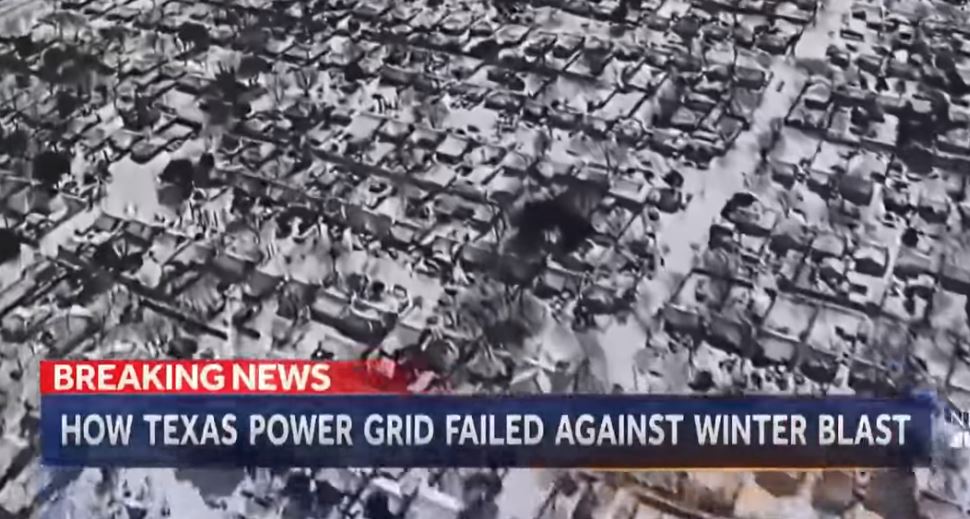HaShev
Platinum Member
- Jun 19, 2009
- 18,359
- 7,570
- 375
Stop blaming others for your lack of emergency preparidness, here's things you can keep in the house for similar emergencies in your town.
1- even in regions without snow, always have all season tires and low temp batteries and emergency supplies in the car/trunk including gloves blankets ski masks etc.
2-precharged battery starter charges and emergency power base in trunk and at home.
3-something that uses very little battery charge but keeps you warm that can be kept under clothes or blankets to keep heat in-those 5pad Electric Heating Pads, with 3 Temperature adjustment for clothes & Winter Camping they are usb powered heat pads so they can plug into usb precharged charger power blocks or laptops, just warm enough to keep your body temperature up under layers of blankets and layers of clothes like thermal undergarments sweat pants and shirts and sweaters and sweat suit jackets etc.2-3 layers of socks Help as well.
To power the usb pads use small wheel chair batteries and an inverter or a solar controller with usb outputs.
Emergency portable heat power and for charging phones use marine batteries that are Deep Cell batteries and a solar panel charger or a flexi panel which can be kept inside the patio door and still charge your deep cell battery with a solar controller and inverter to plug in your heater.
Pick a low watt efficient heater is not easy.
The main thing is to have it directly on you not heat up the house which would eat up your power.
Mainly to keep your nosewarm/ head peeking out the layered blankets-which is where the ski mask helps as well.
In my cabin I did tests to see what temps are tolerable till a heat source is neccessary and for me my max low temp was 42 degrees inside 30 outside, To know your comfort zone is important in recognizing aprox forecasted temps to come and knowing the difference between toughing it out or leaving for better shelter or understanding my heat source hours for rationing the power properly.
Of course I did this to know when not to go camping when forecasts are to hot or to cold, but it also is helpful info in emergency decisions.
Have emergency places to run to, family or friends or kind businesses.
Lastly book a ticket to the North Pole, according to Al Gore and John Kerry there's a warming that is melting ice there.

1- even in regions without snow, always have all season tires and low temp batteries and emergency supplies in the car/trunk including gloves blankets ski masks etc.
2-precharged battery starter charges and emergency power base in trunk and at home.
3-something that uses very little battery charge but keeps you warm that can be kept under clothes or blankets to keep heat in-those 5pad Electric Heating Pads, with 3 Temperature adjustment for clothes & Winter Camping they are usb powered heat pads so they can plug into usb precharged charger power blocks or laptops, just warm enough to keep your body temperature up under layers of blankets and layers of clothes like thermal undergarments sweat pants and shirts and sweaters and sweat suit jackets etc.2-3 layers of socks Help as well.
To power the usb pads use small wheel chair batteries and an inverter or a solar controller with usb outputs.
Emergency portable heat power and for charging phones use marine batteries that are Deep Cell batteries and a solar panel charger or a flexi panel which can be kept inside the patio door and still charge your deep cell battery with a solar controller and inverter to plug in your heater.
Pick a low watt efficient heater is not easy.
The main thing is to have it directly on you not heat up the house which would eat up your power.
Mainly to keep your nosewarm/ head peeking out the layered blankets-which is where the ski mask helps as well.
In my cabin I did tests to see what temps are tolerable till a heat source is neccessary and for me my max low temp was 42 degrees inside 30 outside, To know your comfort zone is important in recognizing aprox forecasted temps to come and knowing the difference between toughing it out or leaving for better shelter or understanding my heat source hours for rationing the power properly.
Of course I did this to know when not to go camping when forecasts are to hot or to cold, but it also is helpful info in emergency decisions.
Have emergency places to run to, family or friends or kind businesses.
Lastly book a ticket to the North Pole, according to Al Gore and John Kerry there's a warming that is melting ice there.
Last edited:

 ^^^
^^^